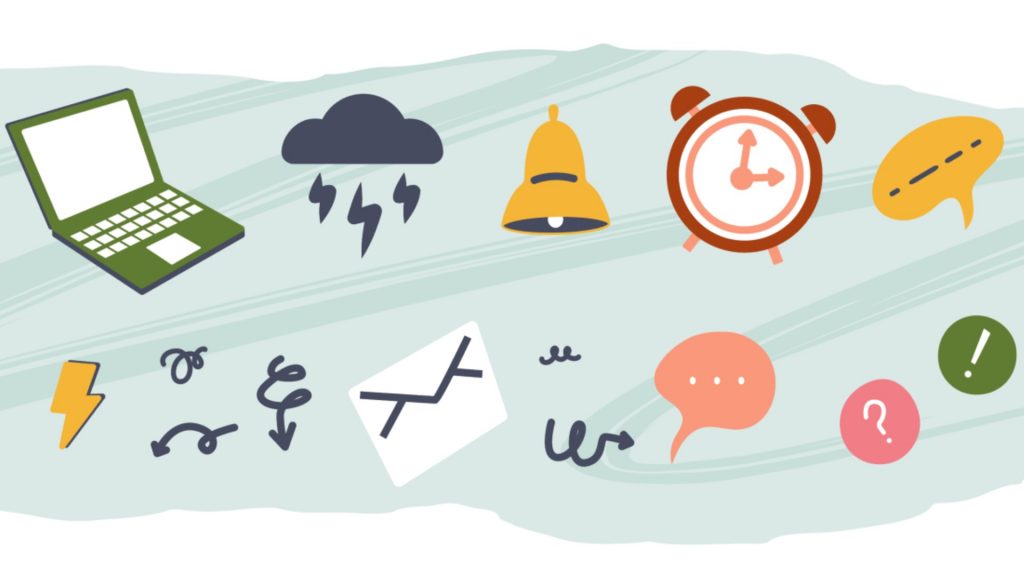Managing anxiety in the workplace

Image: Courtesy of Getty Images
Anxiety is often described as a feeling of fear or unease, and many people experience it at different points in their lives.
It can be caused by many different situations and life experiences and sometimes there is no obvious trigger for it.
When anxiety becomes overwhelming, persistent, or interferes with daily life, it may be part of an anxiety disorder. Anxiety disorders such as generalized anxiety disorder (GAD), panic disorder, and social anxiety disorder are among the most common mental health conditions in the UK.
If you’re experiencing any of the following, you’re not alone. These are common signs of anxiety:
- Physical symptoms: Faster, irregular or more noticeable heartbeat, feeling lightheaded and dizzy, headaches, chest pains, loss of appetite, sweating, breathlessness, feeling hot, shaking.
- Mental symptoms: Feeling tense or nervous, worrying, feeling tearful, not being able to sleep, difficulty concentrating, fear of the worst happening, obsessive thoughts.
- Behavioural changes: Not being able to enjoy your leisure time, difficulty looking after yourself, struggling to form or maintain relationships, avoiding places and situations, compulsive behaviour such as constantly checking things.
Whether it revolves around work or is unrelated, anxiety in the workplace is very common and can significantly impact both mental wellbeing and job performance.
Strategies for coping with anxiety at work
- Try to pinpoint your triggers by noting down moments when you feel anxious during the day. Identifying specific situations that trigger your anxiety can help you develop the best strategy for handling them in the future.
- Break tasks into smaller, manageable steps. Use tools like to-do lists, calendars, or project management apps such as Notion to stay organised. Prioritising tasks can reduce the feeling of being overwhelmed.
- Establish clear boundaries between work and personal life, avoid checking emails after hours and take regular breaks during the day.
- In moments of stress or anxiety, deep breathing can help calm your nervous system. Box breathing is a simple relaxation technique that can help you reset your breath and return it to its normal rhythm.
- Create a comfort kit to give you relief during the day. Your kit could include fidget toys, a playlist of music that helps you feel relaxed, your favourite scent or photos of people or places that have positive memories attached to them.
Remember that seeking help is a strength, not a weakness. If anxiety is affecting your work, consider speaking with your manager or HR representative. If anxiety becomes persistent or overwhelming, you might consider talking to your GP, a therapist or counsellor.
Guidance for managers supporting a team member who is struggling with anxiety
- Encourage openness by letting your team know it’s okay to talk about mental health without fear of judgment or repercussions.
- Be aware of changes in behaviour such as withdrawal from team activities, missed deadlines or decreased productivity, increased irritability or emotional responses, and physical symptoms like fatigue or frequent sick days.
- Approach conversations with care and confidentiality and avoid making assumptions or offering unsolicited advice.
- Anxiety can often stem from uncertainty so be clear about roles and responsibilities, deadlines, priorities, and feedback.
- Schedule one-to-one meetings to build trust and stay connected with your team. Use these check-ins to ask how they’re doing, not just to talk about work.
The University is offering training for managers who would like to learn how to recognise when a staff member is struggling and how you can support them professionally as their line manager. Sign up for the course via my.HR.
If you have any concerns about a member of your team, you may wish to contact the Employee Assistance Programme which offers management guidance.
Support available for staff
The Employee Assistance Programme is available to provide support to you if you need it. If you would find comfort in the Chaplaincy, you can contact them on 01509 223741 or by emailing chaplaincy@lboro.ac.uk.
The following organisations offer specialised services that could help you cope with anxiety:
- Anxiety Care UK
- Anxiety UK
- British Association for Counselling and Psychotherapy (BACP)
- Hub of Hope
- NHS talking therapies self-referral
- No More Panic
- No Panic
Keep an eye on our events tab on the internal homepage for upcoming wellbeing webinars. The next webinar on the topic of ‘How to Develop Healthy Habits’ will take place on 10 September 2025.
Health and Wellbeing
Wellbeing means being in a positive physical, social and mental state. Wellbeing is important to us as happy, healthy people who achieve harmony in their work / life mix are more creative, productive and help to create a great place to work.